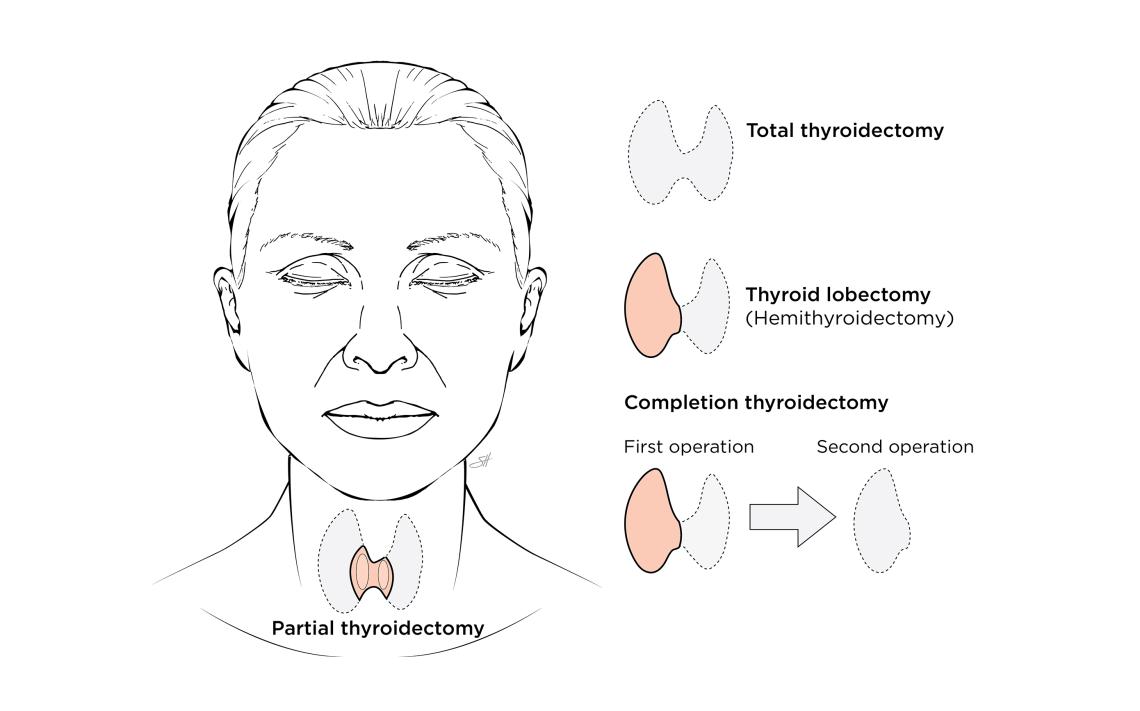Thyroid gland surgery removes all or part of the thyroid gland. The thyroid gland is a butterfly-shaped gland located inside the front of the lower neck. The thyroid gland is part of the endocrine system and helps your body regulate your metabolism.
You may have surgery if you have an overactive thyroid gland and do not want to have radioactive iodine treatment or you cannot be treated with anti-thyroid medicines.
Additional reasons for thyroid removal include thyroid cancer, a small thyroid growth (nodule or cyst), (benign) tumors of the thyroid that are causing symptoms or thyroid swelling (nontoxic goiter) that makes it hard to breathe or swallow.
Types of Thyroidectomy Procedures
- Thyroid lobectomy (hemithyroidectomy) removes either the right or left side of the thyroid.
- Total thyroidectomy removes the entire thyroid gland.
- Completion thyroidectomy removes any remaining thyroid tissue from a patient who had previous thyroid surgery.
What is a Thyroidectomy Procedure?
In the traditional approach, the doctor will take out the thyroid through a cut (incision) in the front of your neck. There is an alternative that will not leave any visible scar on your neck. Here is more information regarding the scarless option: Scarless Thyroid and Parathyroid Surgery
Depending on why you are having your thyroid gland removed determines if you will have a partial or total thyroidectomy. This procedure is performed under general anesthesia.
Lymph Node Dissection
If your surgery is for thyroid cancer, you may also need a lymph node dissection. In this operation, your surgeon will remove lymph nodes from the neck. These may be in the middle of the neck along the trachea (windpipe) or along the side of the neck, from the bottom of the ear to the collarbone.
Thyroid Hormone
Total thyroidectomy: After a total thyroidectomy you will need to take a thyroid hormone pill once a day for the rest of your life. Please take this pill as directed starting on the day you go home from surgery. This dose may need to be adjusted, however it is usually not adjusted until 4–6 weeks after the surgery. Your endocrinologist or your PCP will be the person in charge of adjusting this medication for you at that time. This is why it is very important that you follow up with your endocrinologist or your PCP, no later than 4 weeks after surgery.
Thyroid lobectomy: Some patients will need to be placed on thyroid hormone replacement after thyroid lobectomy, as well, but will not start until 4–6 weeks after surgery.








 Credit
Credit
